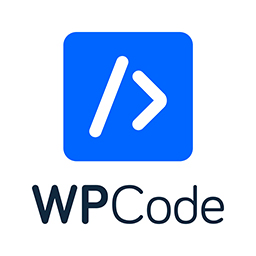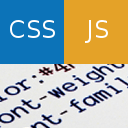Top WordPress Plugins for Adding Custom Code
There is no better way to make your WordPress site more usable than by implementing some custom code to increase performance, functionality, or give your visitors an extra special experience. As a small business owner or creator of content, it is likely that you will require adding scripts to track analytics, automation, or connection with a third party. This is potentially dangerous in a manual process because any tiny error in your core files of your theme will have a way of messing up your site. This is why the fact that you have to use WordPress plugins to add the necessary code is a requirement; it will help you to add your code safely and work with it without causing danger to stability.

Furthermore, the right plugin is not only convenient, but it also gives peace of mind. You do not need to spend hours of your time troubleshooting broken layouts or faulty scripts; you can make content, market it, and expand your business. These tools eliminate fear of breaking the site in beginners, and for more advanced users, new possibilities of customization and scalability.
For instance, modern AI-driven business tools such as Effy AI often require custom script integration for advanced analytics and user tracking. The benefit of the right plugin is the ability to integrate such scripts, without having to alter your site negatively, even after updates to the theme or core WordPress version.
This is especially emphasized in the case of the digital agencies and freelancers, as in this case, you can work with several projects at a time, isolate scripts, and have the client’s web pages remain stable without the necessity to edit them to change their themes.
1. Code Snippets

Code Snippets is one of the most popular plugins for managing custom code because it eliminates the need to edit your theme’s functions.php file directly. Instead, you can add, organize, and activate/deactivate snippets from a dedicated dashboard.
Benefits include:
- No theme files editing: theme customizations never get lost as a result of an update.
- Organized workflow Snippets are easy to manage and name, and can be categorized.
- Beginner-friendly and advanced: Beginners are able to incorporate simple snippets, and advanced users can work with APIs or conditional scripts.
It is also a great benefit to smaller businesses that are trying out the new features or adding them to the site, as it ensures that such changes are implemented safely and without contamination and do not threaten the site. Code Snippets is also popular among many developers since it enables them to save time by sharing and reusing custom functions in more than one project. When you decide to scale your site one day, having a library of ready-to-use code snippets can be of great value.
An example would be keeping a set of snippets relating to SEO, security improvements, or even performance improvements that you can immediately pull out and put into new projects. The other benefit is that the snippets are exportable and importable, which is most useful when you need to migrate functionality between the staging and production environments.
2. WPCode (Formerly Insert PHP Code Snippet)

WPCode supports PHP, HTML, CSS, and JavaScript snippets. It comes with pre-built templates for common use cases, making it easy to implement complex features quickly.
Why it stands out:
- Targeted loading: Selectively load snippets on post- or page-specific pages.
- Templates: Abstract ready-to-use snippets shorten development time.
- Performance: Eliminates unneeded code to decrease the speed of your site.
This makes WPCode ideal for businesses connecting with enterprise applications or AI-based platforms such as Effy AI, where advanced tracking of user engagement and integrations are required. It is also useful in the case of multilingual or multi-regional websites, since one can only load the scripts where they are needed. In one example, GDPR compliance scripts may be configured to show up to European visitors and leave other scripts to show up to users in the US or Asia.
WPCode also contains error processing, ensuring that the faulty snippets do not crash your entire site, the savior of both amateur and advanced users.
One more factor that makes WPCode more remarkable is the fact that it is integrated with marketing tools. You are able to add tracking codes using Google Analytics, Facebook Pixel or automation systems without altering your theme. This can be of great advantage to businesses, which are dependent on continuous campaign testing.
3. Simple Custom CSS and JS

Simple Custom CSS and JS are designed for users who want to add styling and client-side scripts. It allows:
- Including the CSS and the JS at a global and per-page level.
- Getting a feel of the changes in real-time without the danger of crashing.
- Animations, stylization, and Wording code.
The small business would find this an appropriate plug-in because they have marketing campaigns that involve the integration of such things as ad trackers, chatbots, and forms in their websites, and such an integration is executed well without any interference with the other plug-ins. It is also an excellent add-on when making fast design adjustments. You do not need to contract a developer to change the color of the buttons or the margins, but rather just a few lines of CSS, and your site will look and feel better immediately. In the long run, this malleability will accumulate to a slicker brand image at no significant development expenses.
Also, there is Simple Custom CSS and JS that allow testing new design ideas without any risk. You would like to test out dark mode, responsive typography, or sophisticated animations. These styles can be added and taken away at any time, should you not be pleased with the result. Such experimentation is highly empowering to small groups with minimal budgets.
4. Advanced Scripts

Advanced Scripts is a premium plugin that provides complete control over script loading. With it, you can:
- Dynamic load scripts conditionally (depending on the role of a user, a device, or a location).
- Gain server efficiency through the regulation of execution time
- Have more than one script organized in one tidy interface
This is also better suited in firms with substantial levels of automation or Artificial Intelligence, like Effy AI, since the scripts are wholly independent of one another and are not expected to affect performance at all. The unique feature of this plugin is that it can deal with very complicated situations. The e-commerce site may, as an example, use it to load various scripts based on whether the visitor is logged in, mobile browsing, or in a specific country. This fine-grained control also makes sure that only the needed scripts execute, and this makes the site fast and secure.
Besides, Advanced Scripts is compatible with CDNs and caching plugins so that even the most voluminous amount of code can be executed without difficulties. Companies with high scaling requirements, e.g. membership sites, SaaS applications or the high automated shops will find the stability this offers. Even though it is a high-end solution, the investment will pay out through less downtime, improved performance, and more chances to experiment.
How to Choose the Right Plugin
When selecting a WordPress plugin for custom code, consider:
- Experience: Newbies can start with the Insert Headers and Footers or Simple Custom CSS and JS, and more experienced users will find it useful to use the WPCode or Advanced Scripts.
- Code type: WPCode or Code Snippets will be suitable in case of PHP. Simple Custom CSS and JS are better styling options.
- Marketing-intensive websites must put their money into Advanced Scripts.
- Scalability: WPCode and the Advanced Scripts are built to support the eventual growth of the business.
Support and updates are another factor that should be considered. A properly maintained plug-in will be compatible with the newest versions of WordPress and reduce the threat of vulnerabilities. Free options can suffice with simple applications, but companies that must use a lot of automation or AI solutions should look at higher-end options, which usually have specialized support and extra functionality.
The other aspect that might be considered is ease of migration. The hosting service can be changed as your business grows, or swapped themes, or even the content management system. You will spend days of work on selecting a plugin that will enable the export/import of snippets and settings. Security is also essential – poorly written plugins may be the keys to the door. Always verify the reputation of the plugin, reviews, and history of updates.
Final Thoughts
Custom code does not need to be dangerous to add. The appropriate plug will help you apply the snippets safely, remain stable, and improve over time. You can add meeting analytics, marketing scripts, or AI integrations such as Effy AI, and do so with ease.
This is an opportunity for small businesses, and in particular, to simplify those processes of tracking, automation, and reporting without compromising the security and speed of the sites. Selecting the correct plugin also implies that your site is future-proof: as your business expands, your webpage will be able to deal with additional tools, integrations, and more sophisticated automation without losing its performance. This would save on time, reduce risks in the long run, and make your WordPress site powerful and reliable.
About the Author

Anthony Wildeno is a writer and technology enthusiast with a strong interest in digital tools, web development, and online trends. He enjoys exploring how technology can make work and life more efficient, and he regularly shares insights on productivity, innovation, and the future of the internet.






